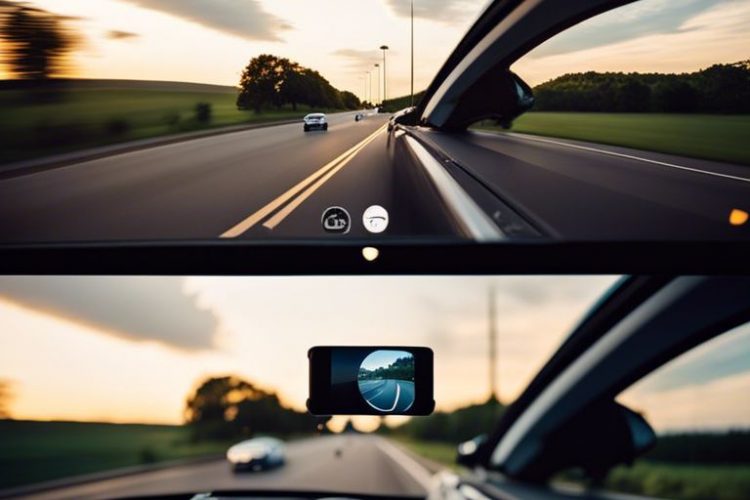There’s no denying the growing popularity of dashcams for their ability to capture crucial evidence in various road incidents. But can these devices truly deliver irrefutable proof in unexpected situations? In this blog post, we probe into the role of dashcams in providing concrete evidence during unforeseen events such as accidents, road rage incidents, and even natural disasters. Discover how dashcams can be a reliable source of evidence and help individuals navigate unexpected situations with confidence and assurance.
Key Takeaways:
- Dashcams can capture critical evidence: In unexpected situations such as accidents or altercations, dashcams can provide valuable proof of what actually occurred, helping to resolve disputes.
- Footage may be challenged: While dashcam footage is considered strong evidence, it can still be challenged in court, especially if authenticity or accuracy is questioned.
- Having a dashcam can be beneficial: Despite limitations, having a dashcam can offer a level of protection and peace of mind while driving, as it can potentially provide valuable evidence in unforeseen circumstances.
Understanding Dashcam Technology
The Basics of Dashcam Functionality
On a fundamental level, dashcams are compact cameras mounted on the dashboard or windshield of a vehicle to continuously record the road ahead. These devices are designed to capture video footage in real-time, providing a visual record of the driver’s perspective and the surrounding environment.
Advances in Dashcam Features and Capabilities
For years, dashcams have evolved beyond simple video recording devices. Modern dashcams come equipped with a range of advanced features and capabilities, such as GPS tracking, motion sensors, and automatic incident detection. These enhancements not only improve the quality of recordings but also add a layer of security and convenience for drivers.
Features: Some dashcams now offer intelligent parking mode, which uses motion sensors to trigger recording when the vehicle is parked. Dual-channel dashcams also provide coverage for the rear of the vehicle, offering a more comprehensive view of the surroundings. Additionally, GPS capabilities allow for accurate location tracking and speed monitoring, further enhancing the reliability of the recorded footage.
Dashcams in the Legal Landscape
Admissibility of Dashcam Footage as Evidence
Any legal professional will confirm that dashcam footage can serve as crucial evidence in various legal proceedings. In both civil and criminal cases, video recordings from dashcams are increasingly being admitted in courtrooms to provide a clear and unbiased account of incidents on the road. Judges and juries often rely on this visual evidence to better understand the circumstances of a case and make fair judgments based on facts.
Limitations and Challenges in Legal Proceedings
Limitations and challenges do arise when utilizing dashcam footage in legal proceedings. Factors such as video quality, angle of recording, and authenticity of the footage can be scrutinized by opposing parties. Additionally, privacy concerns and the potential for footage tampering may impact the admissibility and credibility of dashcam recordings in court.
Evidence from dashcams can be a powerful tool in legal disputes, but it is crucial for lawyers and judges to consider the limitations and challenges associated with these recordings. By understanding the potential pitfalls and addressing them proactively, the legal system can more effectively leverage dashcam footage to ensure justice is served.
Analyzing Dashcam Reliability
Factors Affecting the Credibility of Footage
All footage captured by dashcams is subject to various factors that can impact its credibility. The angle, clarity, and placement of the camera play a crucial role in determining the reliability of the footage. Additionally, lighting conditions, weather, and obstructions like glare or dirt on the lens can affect the quality of the video. It’s important to note that footage may not always provide a complete picture of an incident due to these factors.
- Ensure the camera lens is clean and free of obstructions.
- Consider the lighting conditions when analyzing footage.
- Take into account any potential distortions caused by the angle or position of the camera.
Assume that these variables may affect the accuracy of the footage in unexpected ways, making it crucial to consider all factors when interpreting dashcam videos.
The Role of Data Integrity and Timestamps
To ensure the reliability of dashcam footage, data integrity and timestamps play a vital role. Timestamps provide necessary information about when the footage was recorded, helping to establish a timeline of events. Data integrity ensures that the footage has not been tampered with or altered in any way. Together, timestamps and data integrity contribute to the credibility and authenticity of the footage.
The combination of accurate timestamps and data integrity mechanisms can significantly enhance the reliability of dashcam footage, making it a crucial aspect to consider when evaluating the veracity of video evidence.

Practical Insights and User Awareness
Best Practices for Dashcam Users
On the road, a dashcam can be a valuable tool, but only if used correctly. Ensure your dashcam is properly installed and positioned to capture clear footage without obstructing your view. Regularly check and format the memory card to avoid running out of storage space. Additionally, familiarize yourself with your dashcam’s settings and features to optimize its performance in various driving conditions.
Mitigating Privacy Concerns and Ethical Considerations
Dashcam recordings can raise privacy concerns, especially when capturing footage of unknowing individuals or private property. Dashcam users must be mindful of where and when they are recording to respect the privacy of others. It is vital to understand the laws regarding dashcam use in your jurisdiction and to seek consent when recording in sensitive or private areas.
With the growing popularity of dashcams, it is crucial for users to strike a balance between enhancing road safety and respecting privacy rights. Some dashcams offer features like blurring faces and license plates in recordings, providing a level of anonymity for individuals captured on camera. Users should consider these options to mitigate privacy concerns while still reaping the benefits of dashcam technology.
Final Words
Presently, dashcams have proven to be invaluable in providing irrefutable evidence in unexpected situations. These devices not only capture crucial footage of accidents and incidents on the road, but they can also help protect drivers from false accusations and insurance scams. With advancements in technology and increasing popularity, dashcams are becoming necessary tools for improving road safety and security. As more drivers recognize the benefits of having a dashcam installed in their vehicles, we can expect to see a rise in the use of this technology to provide clear and reliable evidence in various unexpected situations.
FAQ
Q: Can dashcams provide irrefutable evidence in unexpected situations?
A: Yes, dashcams can provide irrefutable evidence in unexpected situations by recording video footage of everything that happens on the road. This footage can be used to prove what really occurred during an accident, altercation, or other unexpected events.
Q: How can dashcam footage be used as evidence?
A: Dashcam footage can be used as evidence in court to support your version of events and prove your innocence in case of a dispute. It can help insurance companies determine fault and liability, and can also be valuable in police investigations.
Q: Are there any legal considerations to keep in mind when using dashcam footage as evidence?
A: Yes, there are legal considerations to keep in mind when using dashcam footage as evidence. It is important to ensure that the footage was obtained legally, that it is not altered in any way, and that it complies with privacy laws. Consult with legal experts to understand the rules and regulations in your jurisdiction.



